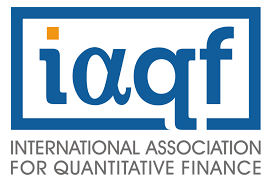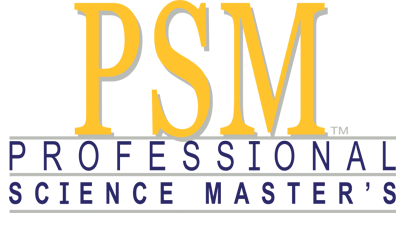Financial Math Program Overview
Rank #12 by QuantNet
Admission Requirements
Excellent Placement
FM Preparation Program
Curriculum
Apply
What is Financial Mathematics?
Financial Mathematics is the application of mathematical methods to the financial problems. Examples of such problems are the valuation of assets and financial instruments as well as the allocation of resources. Centuries of experience have produced fundamental theories about the way economies function and the way we value assets. Models describe relationships between fundamental variables such as asset prices, market movements and interest rates. These mathematical tools allow us to draw conclusions that can be otherwise difficult to find or not immediately obvious from intuition. An example of the application of models is stress-testing of banks. Equivalent names for financial mathematics include quantitative finance, financial engineering, mathematical finance, and computational finance.
Traditionally, investment banks, commercial banks, hedge funds, insurance companies, corporate treasuries, and regulatory agencies apply the methods of financial mathematics. Industries that rely on commodities (e.g. energy, manufacturing) also use similar techniques. These fields draw on tools from probability, statistics, stochastic processes, and economic theory. Especially with the aid of modern computational techniques, we can store vast quantities of data and model many variables simultaneously, leading to the ability to model quite large and complicated systems. Thus the techniques of scientific computing, such as numerical analysis, Monte Carlo simulation and optimization are also an important part of financial mathematics.
Why Choose NCSU?
The Financial Mathematics Program provides technically trained professionals with an understanding of how to value financial derivatives and complex investments, and assess the associated risks. Graduates must have a rigorous training in mathematics, especially in the area of stochastic processes and probability, in statistics, and in computation, together with a foundation in the institutional operation of financial markets. The Program also provides a focal point for Financial Mathematics activities such as research seminars and workshops.
The core courses have been chosen to provide students with a strong mathematical background, statistical and computational tools, and a comprehensive description of financial markets. The core courses and electives are offered by Poole College of Management (Business Management and Economics), College of Science (Mathematics and Statistics), College of Engineering (Computer Science and Industrial and Systems Engineering ), and College of Agriculture and Life Sciences (Agricultural and Resource Economics).
Students are also required to work as a summer intern or work on a industry-originated summer project.
Students get to work one-on-one with the Executive Career Coach to enhance their professional and career development skills, while defining their career goals and gaining valuable resources.
Our students have been placed successfully in full-time jobs and internships. We have 100% placement rate.
Student Profile
We seek highly qualified students with strong backgrounds in mathematics and computing and an interest in working within the financial community. We do not look for specific majors and do not have a single ideal candidate; rather we look for well rounded students with a definite plan to work in the financial community after graduation. Accepted students in past years have had majors as diverse as Mathematics, Economics, Finance, Computer Science, Physics and Engineering. In addition we have accepted PhD’s and MBA’s.
In the fall, a new class of full-time students numbers about 30. But our courses are also attended by part-time and non-degree students who work full-time in the financial industry as well as PhD students in Mathematics, Computer Science, Physics, and other sciences for whom quantitative finance is an attractive career option. At some course sessions, you will also find senior personnel from the financial industry attending who are interested in a lecturer’s approach to a particular topic. We think this varied mix of course participants helps to enrich the educational experience of all, by allowing the sharing of viewpoints from many different professional perspectives.
Affiliations
| The International Association for Quantitative Finance (IAQF) is the not-for-profit, professional society dedicated to fostering the profession of quantitative finance by providing platforms to discuss cutting-edge and pivotal issues in the field. Founded in 1992 as the International Association of Financial Engineers (IAFE), the IAQF is composed of individual academics and practitioners from banks, broker dealers, hedge funds, pension funds, asset managers, technology firms, regulators, accounting, consulting and law firms, and universities across the globe.The IAQF acts as a beacon for the development of quantitative finance. Throughout its history, the IAQF´s pre-eminent leadership has positioned us to respond with savvy to the evolving needs of the financial engineering community. The IAQF´s programs – from our area-specific committees to our monthly panel discussions to the Financial Engineer of the Year Award – are designed to provide our membership with uniquely valuable activities to enhance their work in the field and opportunities to network and socialize with their colleagues. NC State is an IAQF Academic Affiliate | |
| GARP’s goal is to help create a culture of risk awareness within organizations, from entry level to board level. In the areas of financial and energy risk management, GARP sets the global standard in professional designation with the FRM (Financial Risk Manager) and ERP (Energy Risk Professional) certifications. Through our educational programs, specialized content, in-person or online events, and chapter program, GARP promotes best practices in risk management and supports ongoing professional and career development for risk managers.GARP scholarship program is now solely for those students of our academic partner programs. Each academic partner program will be able to nominate up to six students and one faculty member/program administrator each year for a FRM/ERP Part I Exam scholarship. NC State is an FRM Academic Partner. | |
| Professional Science Master’s (PSM) is an innovative graduate degree designed to allow students to pursue advanced training in science or mathematics, while simultaneously developing workplace skills highly valued by employers. PSM programs consist of two years of academic training in an emerging or interdisciplinary area, along with a professional component that may include internships and “cross-training” in workplace skills, such as business, communications, and regulatory affairs. All have been developed in concert with employers and are designed to dovetail into present and future professional career opportunities. Financial Math is a Professional Science Masters |


